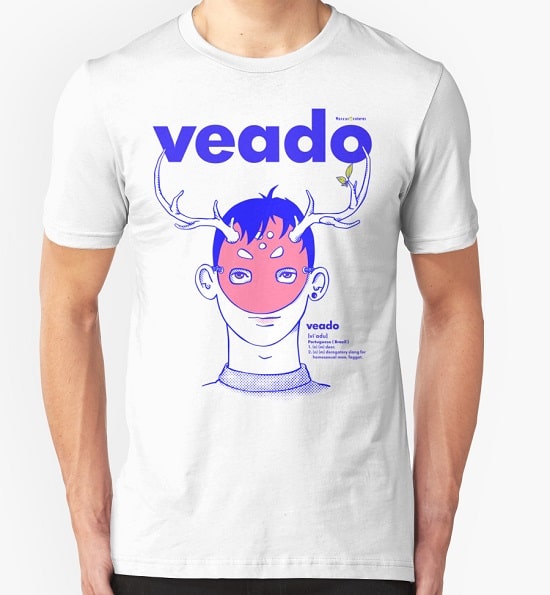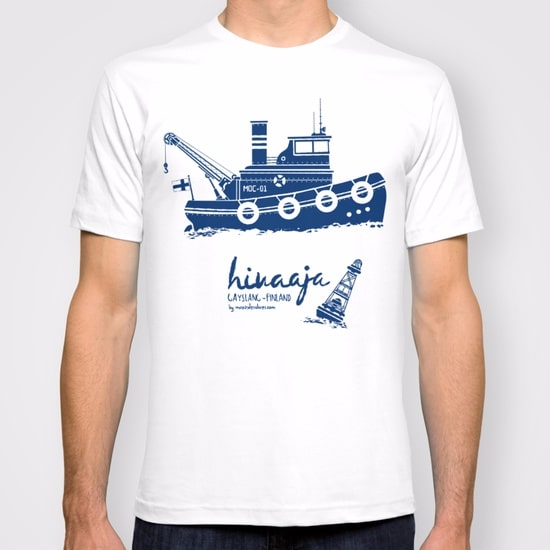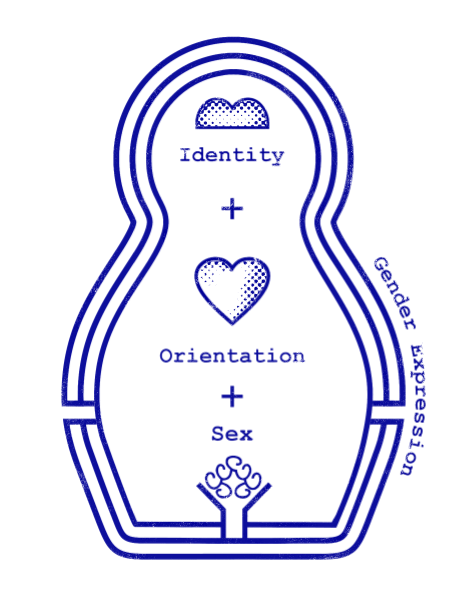hi! in Portuguese the term is ‘paneleiro’ but its VERY pejorative.
Gay Slang Collection
Okama. Gay Dictionary (Japan).
The meaning of Okama.
Okama is the most widely used derogatory word in Japan to refer to a homosexual man, along with English expressions such as fag and faggot. However, as has happened with some insults worldwide, the use of Okama has normalized acquiring a neutral sense. Deep inside, everything is a matter of context and intention.

Okama Drawing & Story looks great printed on a poster and also on a t-shirt. Available for light and dark background.
The origin of Okama
We found the origin of the expression Okama in the word Kama, a term that arises in the Heian period (794-1192), which refers to the utensil to cook rice and whose English translation is a cauldron, pot, etc. The incorporation of the letter O occurs in several dialects of Japanese, Samo, Onwara, Hagagun, and Kamitogagun, giving it the meaning of the vagina. For other dialect variants, the Shizuoka and the Kumamoto, is synonymous with the hole, and in the Ashikaga dialect, it acquires the sense of dark, hidden, or secret. Everything was getting ready (vagina, hole, dark, secret) until reaching the Edo era (1603 – 1867), when the voice Okama ends up meaning faggot. Over time, it is adding different nuances with prefixes and suffixes, such it is the polite Okama-sun, which translated into English is Mr. Okama, and also the least kind Okama-rashii, which we could translate as “faggot-like.”
If you have read our Japanese Lesbian Dictionary, you already know that on many occasions, people creatively transform the words aimed at homosexual men into expressions for lesbians, and Okama was not different. Thus, from a cauldron or a pot, we get the pan, the Japanese word Onabe, that also is slang for lesbian. But, do not leave yet, that there is still more, because with the word Okoge, meaning “the burned rice that stays stuck in the bottom of the pot” they name the heterosexual women who like to date gays, that is, a fag hag. Okama, Onabe and Okoge, three related expressions to brood over.
The cauldron’s journey
And we brood over because in Portugal and Holland we find a connection. The Portuguese expression Paneleiro refers to who sells or manufactures pots, and it is synonymous with faggot. In the Dutch language, we have the word Poot which means leg, and it is slang of faggot, and the word Pot, which means pot, and it is a slang of a lesbian.
Coincidence or causality, we will never know. But the truth is that in the Edo period, there was a strong autarchy, and Japan substantially limited its foreign trade relations with the significant exception of these two countries. According to this, we cannot rule out that the word Okama traveled to the other side of the world, spreading signifiers and meanings. However, it could also be a reflection of we are not so different concerning our relationship with sexual diversity.
The Okama design
With the word Okama, we have made an anime-style illustration, the typical Japanese pot used to cook rice. Six hundred years later, we present you Mr. Okama, a great Japanese cauldron, animated and hot, sweating, with many stories to tell and also to cook. We hope you like it and you purchase this beautiful Drawing & Story, to wear it with pride or gift, someone, as special as you.
When you purchase a Moscas de Colores design you not only help us to support this website and this project, but you also become part of the group of people that spread the words, their history and the reality that has gone with us and that still goes with us, because each of our designs is a story that you will tell and explain, an opportunity to help things get better by normalizing, visibilizing and, why not, reappropriating.

Okama. Gay Dictionary (Japan).
The literal translation of Okama is a cauldron and is gay slang, although its use has been normalized acquiring a neutral sense in addition to the contemptuous one. We have created 2 Drawings & Stories, for light and dark background for your original and funny gay shirt with an anime-style cauldron.
Other Drawings & Stories of this collection:
Leave a Reply
Hi Ricardo!
Thank you for your clarification.
I have found that many people pronounce it “pandeleiro” Can you confirm that it is also pronounced like that?
Have you seen our Portuguese Gay Dictionary? Do you know any other word?
Regards.
It’s not a neutral word though… and it’s not gay “slang” either.
Queer people in Japan rarely if ever use this word to describe themselves anymore so how is it “gay” slang?
Also, your article doesn’t mention anywhere how the word is most often used to describe cross-dressing men and trans women… Historically, it was used against gay men but the conflation of being gay with cross-dressing and being trans changed the word so it refers to the later today.
It’s use is basically equivalent to transvestite and very close to Tr***y. It might not be considered a slur in Japanese media but it will be in the future. Guaranteed.
I speak fluent Japanese, am trans, and lived there for many years.
Dear Kayla:
Thank you very much for your comment and the information. We appreciate it very much and will bear in mind for the next edition of the Okama article. We would like to, but unfortunately, we cannot travel around the world collecting the words, and we have to rely on the bibliography that is available online, which is quite abundant regarding Okama slang. For example, in “Japanese Street Slang” by Peter Constantine (1992) Okama is not documented as slang for Drag Queens or transgender people. However, we have to admit that we have indeed found some brief information in the sense that you point out, but it was so insufficient that we thought that this use of this slang was a minority. Thanks for opening our eyes. We should also bear in mind that the words have a life of their own, and today they mean one thing and tomorrow another, although related. Please, if you can supply more information, it will help us a lot.
Kind regards.







Do you like this Drawing & Story?
Tell us what you think about the illustration and what we tell on it. If you like it, you can purchase it printed on t-shirts and different products, to wear them with pride every day or to give to someone special for you.
Share it in your networks!